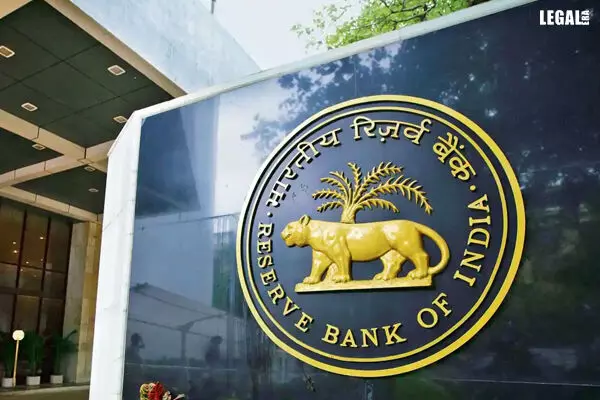- Home
- News
- Articles+
- Aerospace
- Agriculture
- Alternate Dispute Resolution
- Banking and Finance
- Bankruptcy
- Book Review
- Bribery & Corruption
- Commercial Litigation
- Competition Law
- Conference Reports
- Consumer Products
- Contract
- Corporate Governance
- Corporate Law
- Covid-19
- Cryptocurrency
- Cybersecurity
- Data Protection
- Defence
- Digital Economy
- E-commerce
- Employment Law
- Energy and Natural Resources
- Entertainment and Sports Law
- Environmental Law
- FDI
- Food and Beverage
- Health Care
- IBC Diaries
- Insurance Law
- Intellectual Property
- International Law
- Know the Law
- Labour Laws
- Litigation
- Litigation Funding
- Manufacturing
- Mergers & Acquisitions
- NFTs
- Privacy
- Private Equity
- Project Finance
- Real Estate
- Risk and Compliance
- Technology Media and Telecom
- Tributes
- Zoom In
- Take On Board
- In Focus
- Law & Policy and Regulation
- IP & Tech Era
- Viewpoint
- Arbitration & Mediation
- Tax
- Student Corner
- AI
- ESG
- Gaming
- Inclusion & Diversity
- Law Firms
- In-House
- Rankings
- E-Magazine
- Legal Era TV
- Events
- News
- Articles
- Aerospace
- Agriculture
- Alternate Dispute Resolution
- Banking and Finance
- Bankruptcy
- Book Review
- Bribery & Corruption
- Commercial Litigation
- Competition Law
- Conference Reports
- Consumer Products
- Contract
- Corporate Governance
- Corporate Law
- Covid-19
- Cryptocurrency
- Cybersecurity
- Data Protection
- Defence
- Digital Economy
- E-commerce
- Employment Law
- Energy and Natural Resources
- Entertainment and Sports Law
- Environmental Law
- FDI
- Food and Beverage
- Health Care
- IBC Diaries
- Insurance Law
- Intellectual Property
- International Law
- Know the Law
- Labour Laws
- Litigation
- Litigation Funding
- Manufacturing
- Mergers & Acquisitions
- NFTs
- Privacy
- Private Equity
- Project Finance
- Real Estate
- Risk and Compliance
- Technology Media and Telecom
- Tributes
- Zoom In
- Take On Board
- In Focus
- Law & Policy and Regulation
- IP & Tech Era
- Viewpoint
- Arbitration & Mediation
- Tax
- Student Corner
- AI
- ESG
- Gaming
- Inclusion & Diversity
- Law Firms
- In-House
- Rankings
- E-Magazine
- Legal Era TV
- Events
RBI Joins Hands with UAE's Central Bank to Promote Digital Currencies

RBI Joins Hands with UAE's Central Bank to Promote Digital Currencies
The Reserve Bank of India (RBI), has recently inked a memorandum of understanding (MoU) with the central bank of the United Arab Emirates (UAE) to advance the development of fintech, with a particular focus on cross-border transactions of Central Bank Digital Currencies (CBDCs).
According to a report, the RBI stated that the MoU between the RBI and the central bank of the UAE will involve joint efforts in several fintech areas, with a specific emphasis on central bank digital currencies (CBDCs). The two entities will also explore the possibility of interoperability between their respective CBDCs.
As per the agreement, the two central banks have plans to collaborate on a proof-of-concept and pilot for a bilateral CBDC bridge. This initiative aims to enable cross-border transactions involving CBDCs for remittances and trade purposes.
The report further stated that the RBI has indicated that the collaborative testing of a cross-border CBDC use case between the two countries is expected to result in reduced costs, enhanced efficiency in cross-border transactions, and strengthen the economic ties between India and the UAE.
The report mentioned that the MoU also includes provisions for technical collaboration and knowledge-sharing regarding fintech and financial products and services.
In the previous year, the RBI conducted pilot runs of CBDC in both wholesale and retail segments, in partnership with various banks. A CBDC also referred to as an e-rupee, is a digital currency that is supported by a regulatory authority and serves as a legitimate form of payment.
It has been reported that more than 60 central banks worldwide have shown interest in CBDCs, with some already conducting pilot implementations for both retail and wholesale categories.
In a concept note released in October 2022, the RBI stated that several central banks are presently exploring the risks, benefits, and diverse designs of CBDC, with a primary emphasis on fulfilling domestic requirements. However, the implications of CBDCs are predicted to extend beyond borders, even if they are intended solely for domestic use, highlighting the need for coordination and consensus among various CBDCs from different jurisdictions.
The RBI further highlighted that if this coordination is successful, the introduction of CBDCs provides an opportunity to improve cross-border payments.




